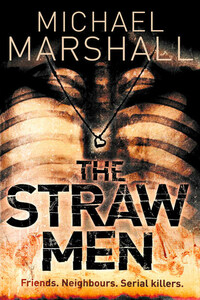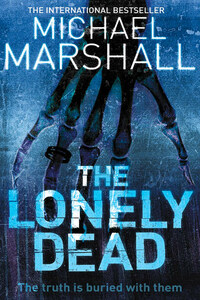It is a beautiful afternoon in late summer, and there is a man standing on the deck of a house in the woods a fifteen-minute drive from Roslyn – a nice, small town in Washington State. It is a fine house, structured around oak beams and river rock and possessed of both cosy lateral spaces and cathedral ceilings where it counts. The deck is wide and deep, wrapping around the whole of the raised first storey, and points out over a slope where a woman sits in a rustic wooden chair, the product of semi-local artisanship. She is holding a baby who is nine months old, and at the moment, miraculously, peaceably quiet. The house and the five acres around it cost a little under two million dollars, and the man is happy to own it, and happy to be standing there. He has spent much of the day in his study, despite the fact it is a Saturday, but that's okay because it is precisely this willingness to work evenings and weekends that puts you in a house like this and confers the kind of life you may live in it. You reap, after all, what you sow.
The deck has a good view toward a very large, wooded lake the locals call Murdo Pond, sixty yards away down the wooded slope, and a little of which – the portion that lies within his property lines – the man guesses he owns too, if you can be said to own a lake. He is wearing a denim shirt and khaki shorts, and in his hand is a tall, cold glass of beer, an unusual occurrence, as he seldom drinks at home – or much at all, unless business demands its shortcut to conviviality – but which feels deserved and appropriate now: what else do we strive for, after all, if not for such an indulgence, on the deck of such a house, at the end of such a day?
He can see that his wife is without a drink, and knows she would probably like one, and will in a short while call down to ask if he can fetch her something. But for a few minutes longer he stands there, feeling more or less at one with the world, or as close to that state as is possible given the complexities of quotidian existence and the intransigence of people and situations and things. Just then a breeze floats across the deck, bringing with it the faint, spicy smell of turning leaves, and for a moment the world is better still. Then it has gone, and it is time to move on.
The man opens his mouth to ask his wife what she'd like to drink, but then pauses, and frowns.
‘Where's Scott?’ he says.
His wife looks up, a little startled, having been unaware of his presence on the deck.
‘I thought he was with you.’
‘Working?’
‘I mean, indoors.’
He turns and looks back through wide-open doors into the living room. Though there is evidence of his four-year-old son's passing – toys and books spread across the floor as if in the wake of a tiny hurricane – the boy is not visible.
The man goes back inside the house and walks through it. Not quickly yet, but purposefully. His son is not in his room, or the kitchen, or the den. Nor is he hunkered down in the stretch of corridor near the main entrance on the other side of the house, a non-space which the boy has colonized and where he is sometimes to be found frowning in concentration over a self-imposed task of evident fascination but no clear purpose.
The man returns through the house and out onto the deck, and by now he's moving a little more quickly.
His wife is standing, the baby in her arms.
‘Isn't he there?’
The man doesn't answer, judging his speed will answer the question. It does, and she turns to scan her eyes around the lawns, and into the woods. He meanwhile heads round to the far right extent of the deck. No sign of the boy from up there. He walks back to the other end and patters down the cedar steps.
‘When did you last see him?’
‘I don't know,’ she says, looking flustered. He realizes briefly how tired she is. The baby, Scott's little brother, is still not sleeping through the night, and will only accept small hours' comfort from his mother. ‘About half an hour ago?’ she decides. ‘Before I came out. He was in, you know, that place where he sits.’
He nods quickly, calls Scott's name again, glances back toward the house. His son still does not emerge onto the balcony. His wife does not seem overly concerned, and the man is not sure why he













